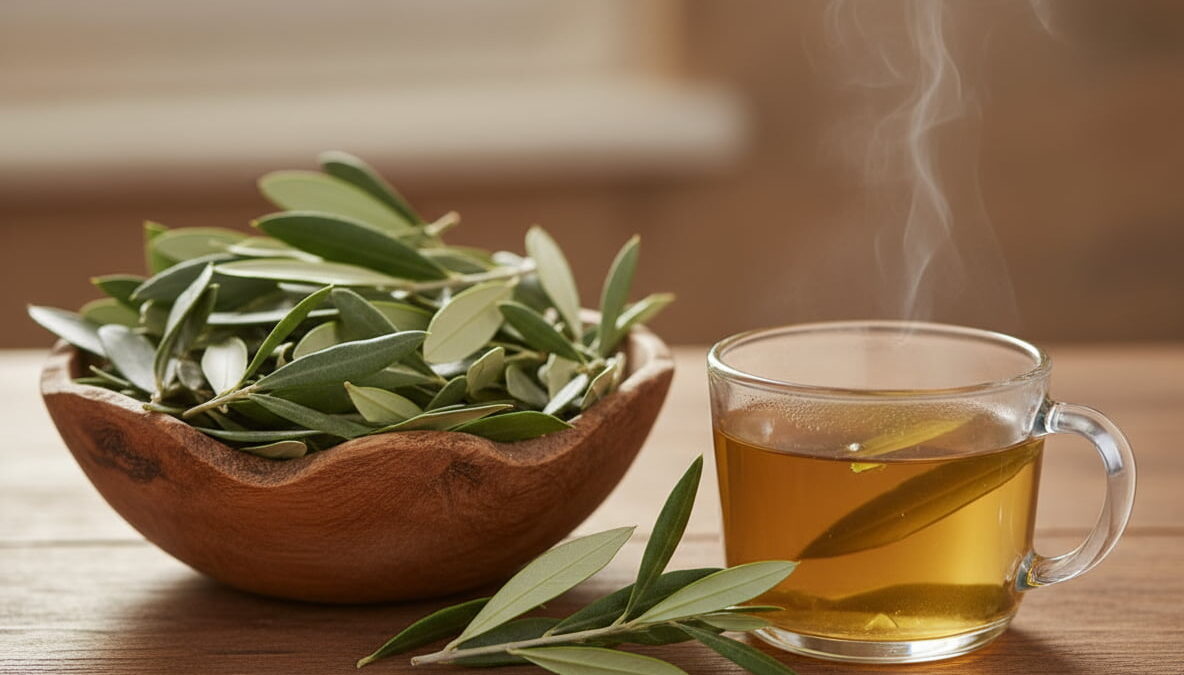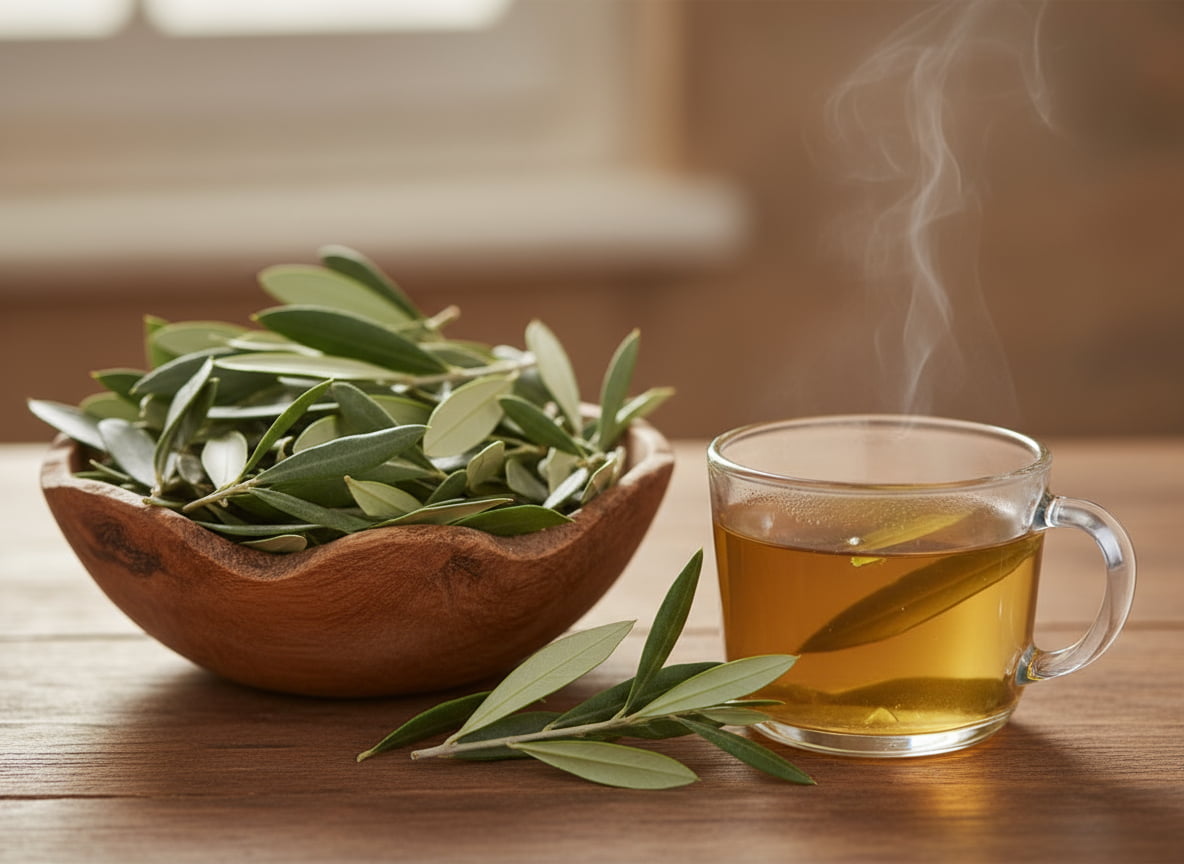Olive leaf infusion: benefits, properties, and scientific evidence

What Is Olive Leaf Infusion
Olive leaf infusion is a natural beverage made from the dried leaves of the Olea europaea plant, a symbol of the Mediterranean and traditional herbal medicine. Used for centuries to promote overall wellness, this natural remedy has recently gained attention from the scientific community, which is investigating its potential health benefits.
Composition and Active Compounds
Olive leaves contain numerous bioactive compounds that explain their wide range of health-promoting effects. Among the most important are oleuropein, a powerful natural antioxidant; hydroxytyrosol, known for its anti-inflammatory and cardioprotective properties; and a variety of flavonoids, triterpenic acids, and polyunsaturated fatty acids.
These compounds are responsible for the antioxidant, anti-inflammatory, and hypotensive properties of olive leaf infusion, as supported by various scientific studies.
(MDPI – Olive Leaf: Bioactive Compounds and Health Benefits)
(ResearchGate – Olive leaf and its various health-benefitting effects: a review study)
Health Benefits of Olive Leaf Infusion
Blood Pressure and Cholesterol Regulation Several clinical studies suggest that regular consumption of olive leaf extract may help reduce blood pressure and improve cholesterol levels. Reductions in both systolic and diastolic pressure have been reported, along with lower total and LDL cholesterol.
(Journal of the Science of Food and Agriculture)
Blood Sugar Control. Oleuropein and other polyphenols in olive leaves appear to support blood sugar regulation. Preliminary research shows improved insulin sensitivity and reduced postprandial glucose spikes in participants taking olive leaf extract.
(ResearchGate – Olive leaf extract and glucose regulation)
Anti-Inflammatory and Antimicrobial. Properties Olive leaf extracts also show anti-inflammatory and antimicrobial activity. Studies have demonstrated their effectiveness against several microorganisms, including antibiotic-resistant bacteria, thanks to the combined action of polyphenols and flavonoids.
(MDPI – Biological activities of olive leaf extract)
How to Prepare Olive Leaf Infusion
Preparing olive leaf tea is simple and requires no special equipment. Bring about 250 ml of water to a boil, add 5 grams of dried leaves (or 10 grams if fresh), steep for 10–15 minutes, and then strain.
You can drink the infusion once or twice a day, preferably between meals, to support better absorption of the active compounds.
Contraindications and Precautions
Although natural, olive leaf infusion is not entirely without precautions. It can enhance the effects of antihypertensive or hypoglycemic medications, so those taking prescription drugs should consult a healthcare professional before use.
It is also not recommended during pregnancy or breastfeeding, and in rare cases may cause mild gastrointestinal discomfort.
(National Library of Medicine – Review on Olive Leaf Extract Safety)
Conclusions
Olive leaf infusion is a healthy and natural beverage rich in beneficial compounds. Scientific research highlights its potential to support cardiovascular and metabolic health through its antioxidant and anti-inflammatory effects.
However, it should be considered a supportive natural remedy, not a replacement for medical treatments. As research continues, guided and informed use under professional supervision can make it a valuable ally for everyday wellness.


